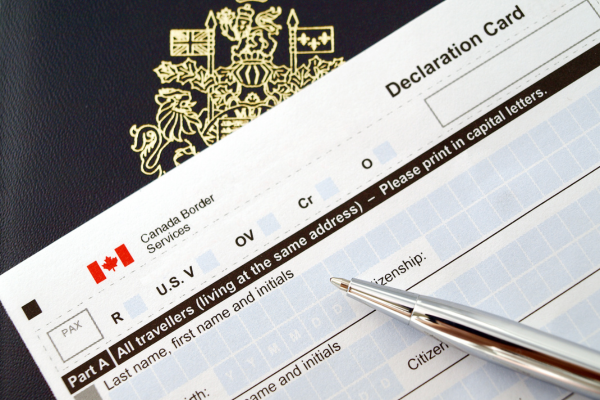Immigrating to Canada as an International Student
Canada has long been a popular destination for international students seeking a high-quality education and the opportunity to live and work in a diverse, welcoming country. With its world-renowned universities, vibrant cities, and multicultural society, Canada offers an exceptional student experience. But for many, studying in Canada is more than just a chance to further their education – it’s a pathway to permanent residency and a new life in this great nation.In this comprehensive guide, we’ll explore the various ways international students can immigrate to Canada, from study permits and post-graduation work opportunities to popular permanent residency programs tailored to international graduates. We’ll also delve into the eligibility requirements, application processes, and key considerations for each immigration pathway.
The Benefits of Studying and Immigrating to Canada
Canada is consistently ranked as one of the best countries in the world for quality of life, with a stable economy, safe communities, and a high standard of living. For international students, studying in Canada offers numerous advantages:
- High-quality education: Canada’s universities and colleges are renowned for their excellence in teaching and research, with many institutions ranking among the best in the world.
- Multicultural society: Canada is a diverse and inclusive country, with people from all over the world calling it home. International students can immerse themselves in a vibrant, welcoming culture.
- Affordable tuition and living costs: Compared to other popular study destinations like the United States and the United Kingdom, Canada offers more affordable tuition fees and living expenses.
- Opportunities for work and immigration: International students in Canada can work part-time during their studies and apply for a post-graduation work permit after completing their program. Many also go on to become permanent residents through various immigration programs tailored to international graduates.
Study Permits and Work Opportunities for International Students
To study in Canada, international students must obtain a study permit from Immigration, Refugees and Citizenship Canada (IRCC). This document allows students to enroll at a designated learning institution (DLI) and stay in Canada for the duration of their studies.
Eligibility Requirements for a Study Permit
To be eligible for a study permit, applicants must:
- Be accepted by a designated learning institution (DLI)
- Prove they have enough money to pay for tuition fees, living expenses, and return transportation
- Meet the requirements for the program they plan to study
- Satisfy the visa officer that they will leave Canada at the end of their studies
Applying for a Study Permit
The study permit application process typically involves:
- Gathering required documents, such as a valid passport, proof of acceptance from a DLI, proof of funds, and language test scores (if applicable)
- Submitting the application online or by mail, along with the required fees (currently CAD 150 for the study permit application and CAD 85 for biometrics)
- Providing biometrics (fingerprints and a photo) at a designated collection point, if required
- Attending an interview at the Canadian visa office, if requested
Working While Studying
International students in Canada are allowed to work part-time while studying, which can help offset living expenses and provide valuable work experience. Students can work:
- On campus without a work permit
- Off campus for up to 20 hours per week during academic sessions and full-time during scheduled breaks, with a valid study permit
Post-Graduation Work Permit Program (PGWPP)
After completing their studies, international students may be eligible for the Post-Graduation Work Permit Program (PGWPP), which allows them to work in Canada for up to three years. This program is designed to help international graduates gain Canadian work experience and facilitate their transition to permanent residency.
Eligibility Requirements for the PGWPP
To be eligible for the PGWPP, applicants must:
- Have completed a program of study that is at least eight months long at a DLI
- Have a valid study permit when applying for the PGWPP
- Apply for the PGWPP within 180 days of receiving written confirmation of completing their studies
Pathways to Permanent Residency for International Students
Studying and working in Canada can provide a direct path to permanent residency for international students. Here are some of the most popular immigration programs tailored to international graduates:
Canadian Experience Class (CEC)
The Canadian Experience Class (CEC) is a popular immigration program that allows international graduates with at least one year of skilled work experience in Canada to apply for permanent residency. Applicants must have gained their work experience through a post-graduation work permit or while authorized to work in Canada.
Federal Skilled Worker Program (FSWP)
The Federal Skilled Worker Program (FSWP) is a points-based system that assesses applicants based on factors such as age, education, work experience, language proficiency, and adaptability. International graduates with a Canadian degree or diploma may be eligible for additional points under the FSWP.
Provincial Nominee Programs (PNPs)
Provincial Nominee Programs (PNPs) allow participating provinces and territories to nominate individuals who wish to immigrate to Canada and contribute to their local economies. Many PNPs have specific streams tailored to international graduates, such as the Ontario Immigrant Nominee Program’s International Student Stream.
Atlantic Immigration Pilot Program (AIPP)
The Atlantic Immigration Pilot Program (AIPP) is a regional immigration program designed to attract and retain skilled foreign workers, international graduates, and international student graduates in the four Atlantic provinces: New Brunswick, Nova Scotia, Prince Edward Island, and Newfoundland and Labrador. International graduates who have completed their studies in one of these provinces may be eligible for the AIPP.
Frequently Asked Questions (FAQ)
Can I work while studying in Canada?
Yes, international students in Canada can work part-time while studying, either on campus without a work permit or off campus for up to 20 hours per week during academic sessions and full-time during scheduled breaks, with a valid study permit.
How long can I stay in Canada after graduating?
After completing their studies, international students may be eligible for the Post-Graduation Work Permit Program (PGWPP), which allows them to work in Canada for up to three years. The duration of the PGWPP depends on the length of the student’s study program.
What are the requirements for the Canadian Experience Class (CEC)?
To be eligible for the Canadian Experience Class (CEC), applicants must have at least one year of skilled work experience in Canada, gained through a post-graduation work permit or while authorized to work in Canada. Applicants must also meet language proficiency requirements and satisfy other eligibility criteria.
Can I bring my family with me to Canada?
Yes, international students in Canada may be able to bring their spouse and dependent children with them. Spouses may be eligible for an open work permit, allowing them to work for any employer in Canada.
How much does it cost to study in Canada?
The cost of studying in Canada varies depending on the institution, program, and location. On average, international students can expect to pay between CAD 20,000 and CAD 30,000 per year for tuition fees, with additional costs for living expenses, health insurance, and other fees.
Conclusion
Studying in Canada offers international students a world-class education, valuable work experience, and a pathway to permanent residency. By understanding the various immigration programs available to international graduates, students can make informed decisions about their educational and career goals in Canada. For more detailed information, please visit the official Government of Canada website on studying in Canada: Canada Immigration and Citizenship.
 Skip to content
Skip to content



